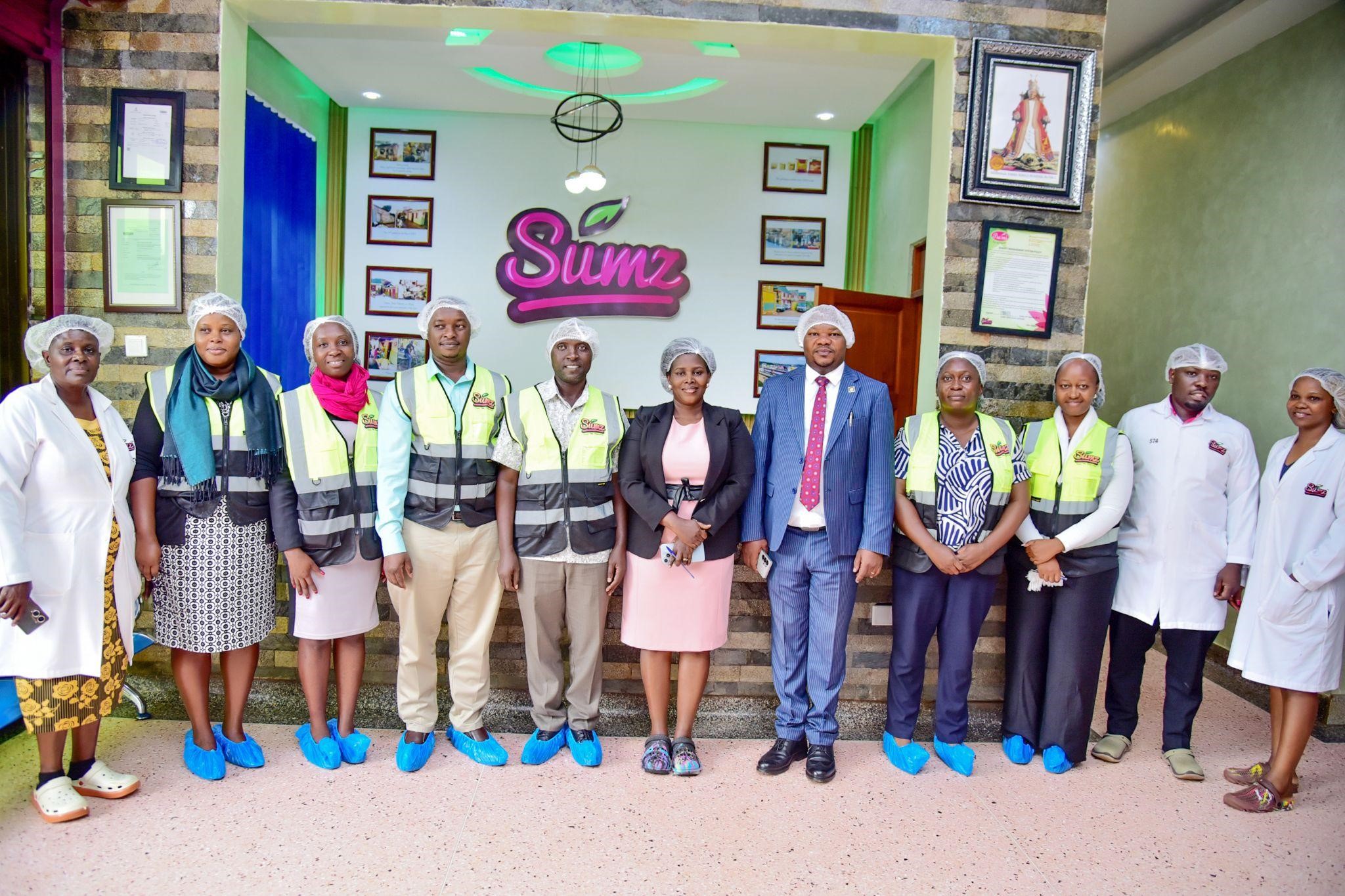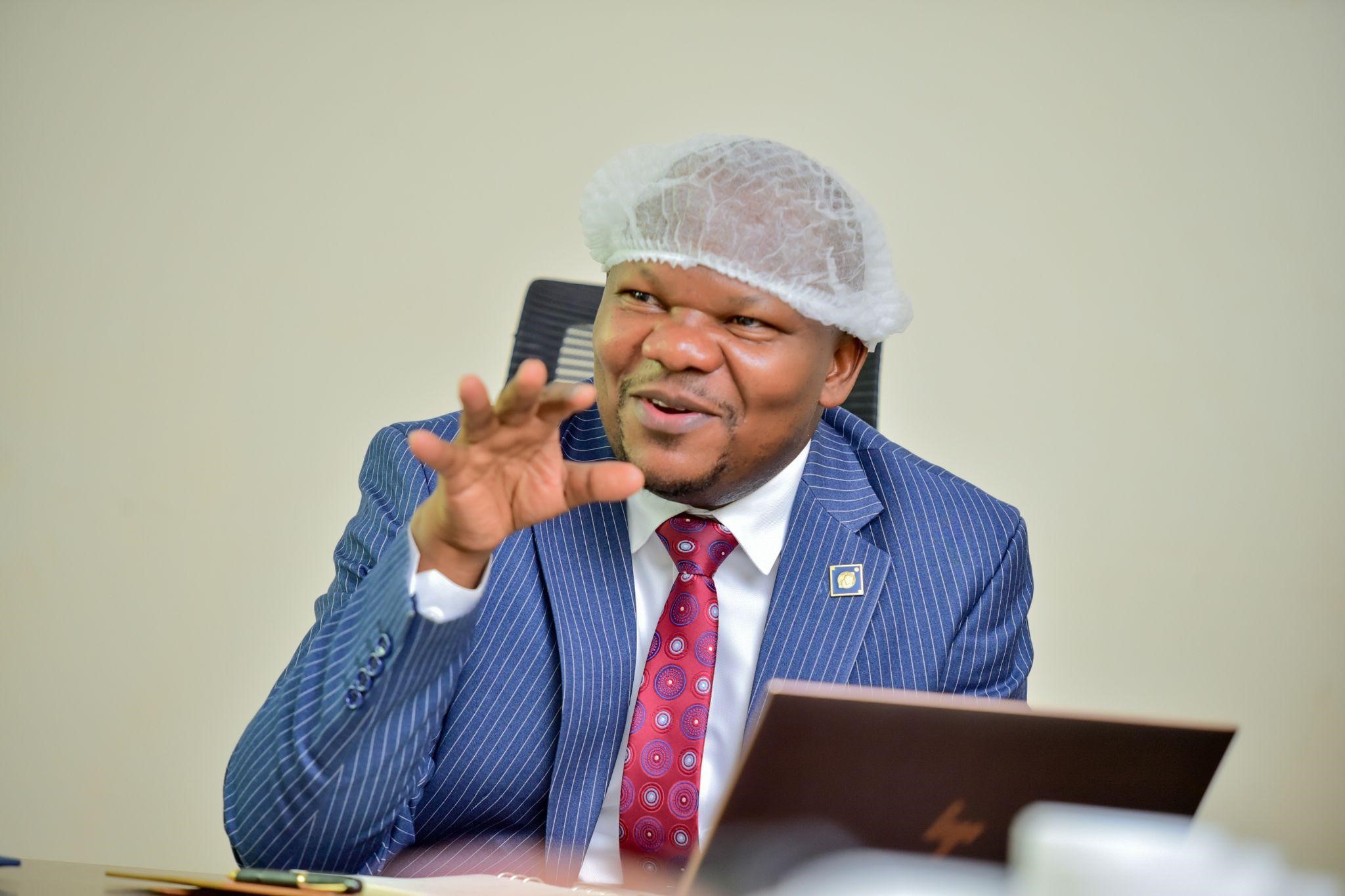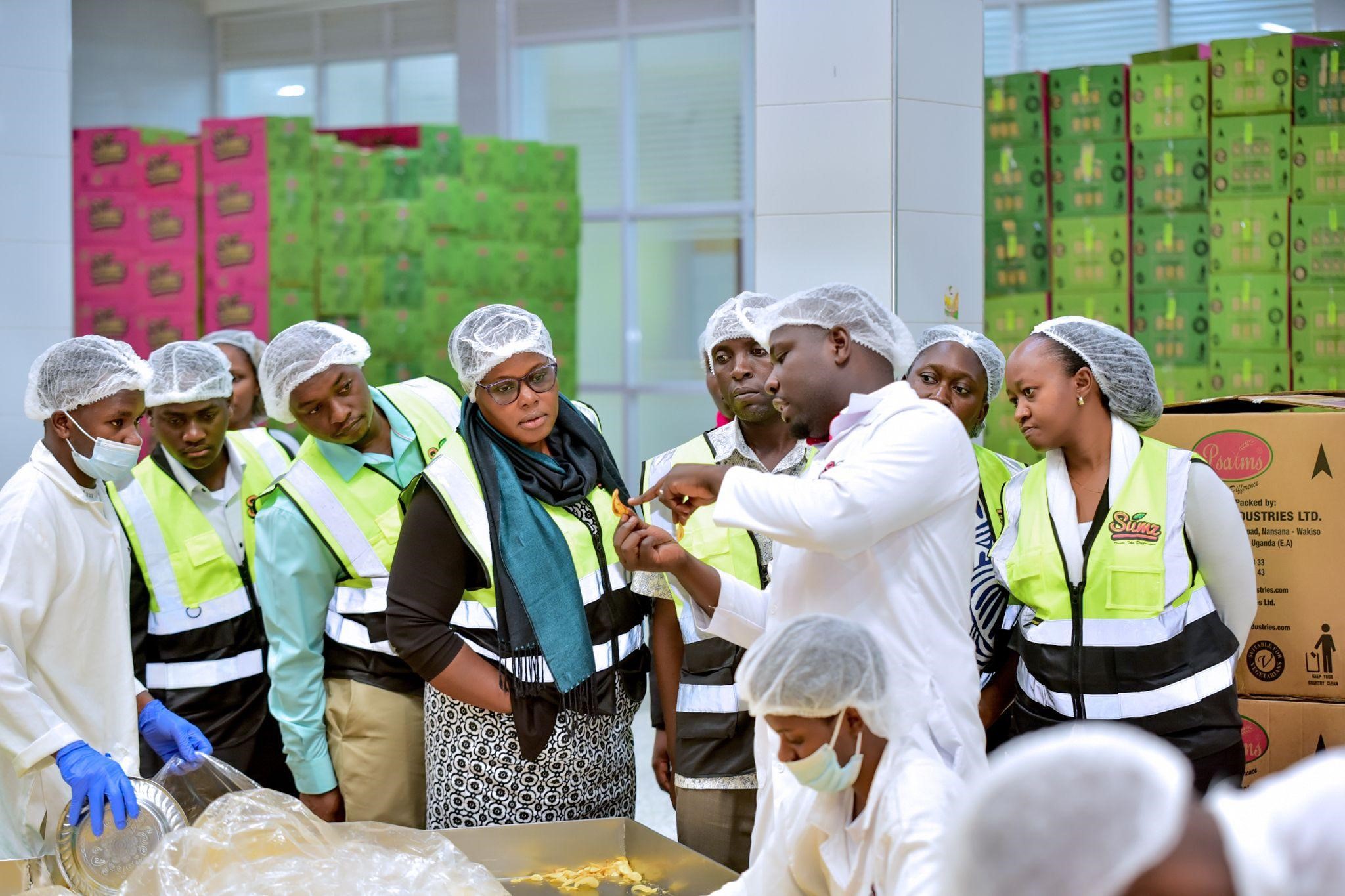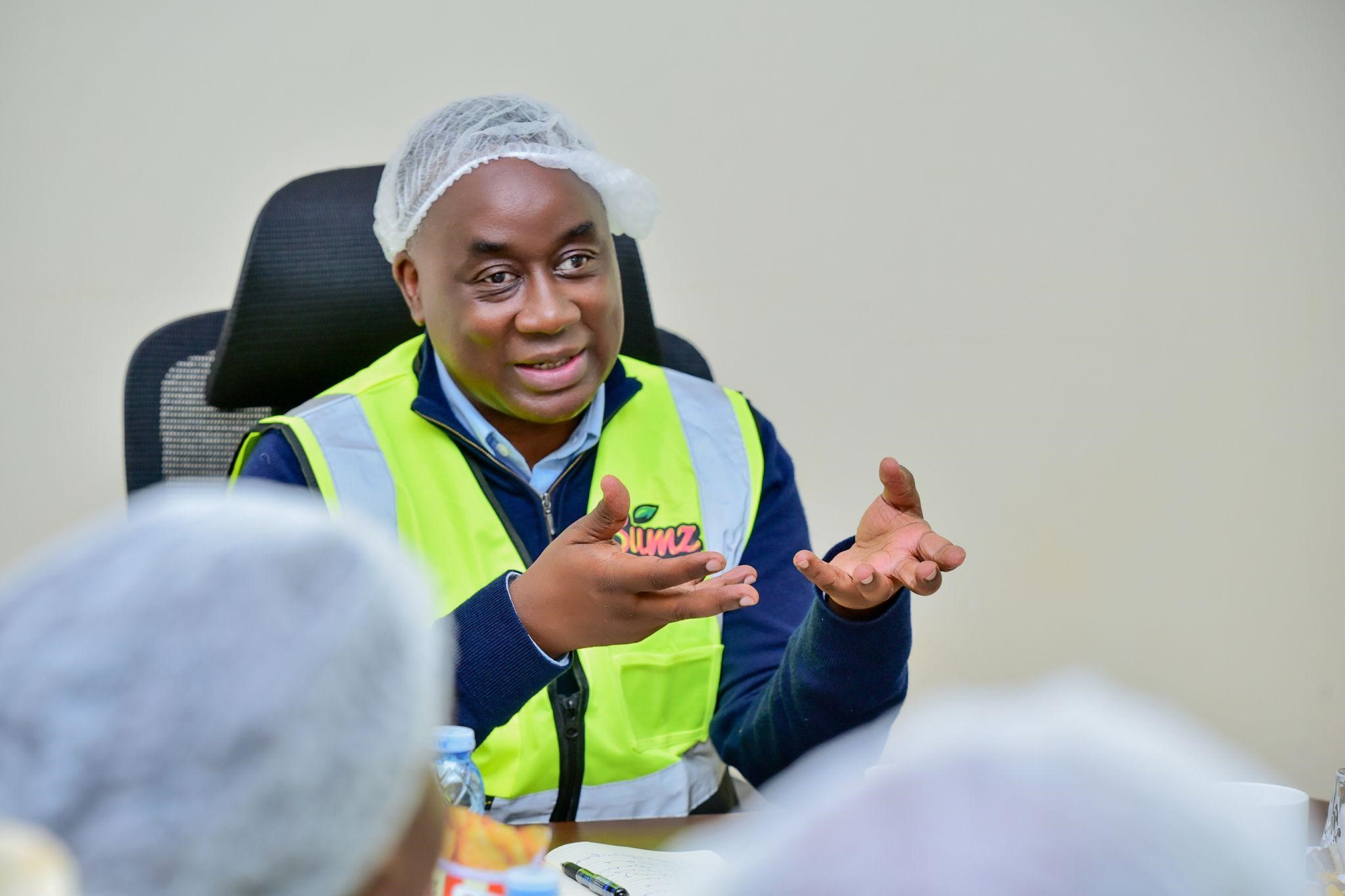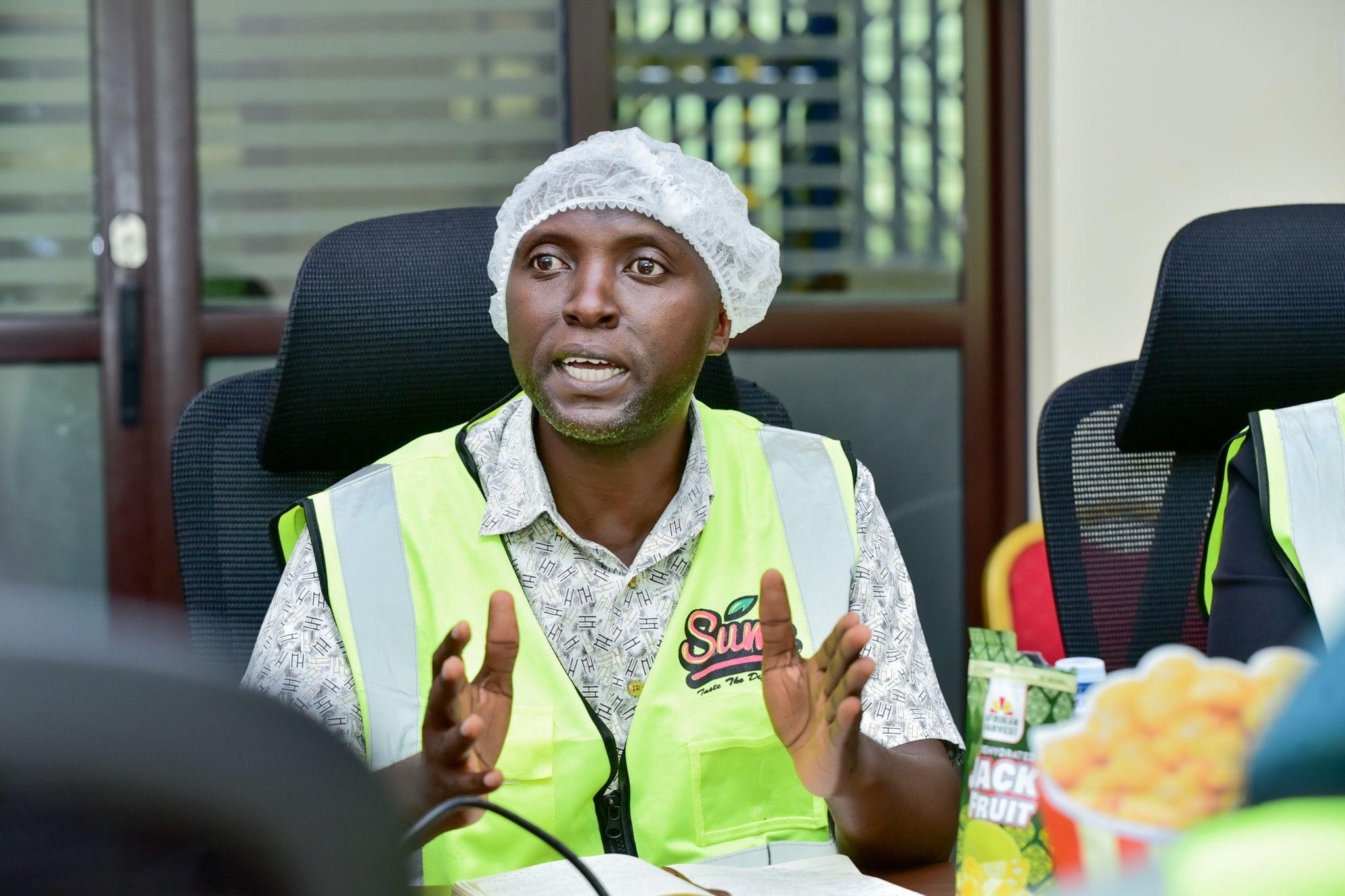Frederick Mbabaali Kyazze speaks with firmness as he shares his life-changing experience at Makerere University. The 62 year old senior citizen of average height, dark complexion and a lean frame has recently retired from Makerere University after fourteen years of dedicated service as a Senior Assistant Registrar. Tiny wrinkles of untold wisdom are beginning to form on his face. His eyes are a deep haven of thoughts and exude intelligence. He turns up for this interview in a neatly pressed cream suit, which reminds me that neat suits have been his trademark over the years. He begins to speak, carefully choosing his words.
Joining the Transcripts Office
In the year 2000, Kyazze joined Makerere University as an Assistant Registrar, Senate Division. After only six months, the hardworking man was assigned a bigger responsibility to head the Transcripts Office. His immediate Supervisor at the time, who later became Academic Registrar of Makerere University Mr. Amos Olar Odur, referred to this move as a vote of confidence in Kyazze. He was subsequently duly appointed to the rank of Senior Assistant Registrar.
“At that time, there was a general public outcry about transcripts in Makerere University. I recall a famous joke on one of the local FM stations that ‘okufuna transcript e Makerere, bakutuma mu ggulu,’ loosely translated as ‘it is easier to go to heaven than to get a transcript from Makerere University.’ Now as Head of the Transcripts Office, I knew it was time to roll up my sleeves and get to serious work; and I resolved to endeavour to not only do good, but do it well too,” Kyazze reminisces.
“I received a letter transferring me to the Transcripts Office with immediate effect. At about 2:00pm, I entered my new office and started work, without induction. My predecessor, Rose Bwire, was also needed in another unit immediately. I take this opportunity to kindly request the concerned officials to pay attention to induction of new officers when transfers are made. I had some challenges in adjusting to my new role minus induction but with the guidance of a few colleagues, I later found my way around,” he says. This new development came with additional responsibilities for Kyazze.
It is then that Kyazze learnt of the various hindrances to fast acquisition of transcripts at Makerere University. Cases of missing/misplaced marks, late submission of marks and submission of incomplete marks were the most common reasons for delayed transcripts. Kyazze would have to face the students one after another and explain to them that everything possible was being done to process their transcripts. He and his team, would then work backwards to resolve the issue with the relevant department. But this did not always go well with the affected students, some of whom would throw insults at him. It is from such incidents that the then Acting Academic Registrar (AR), Sebastian Ngobi referred to him as the punching bag of Makerere University. “This nick-name was because whoever had issues with their transcript came to me. A student would not know which lecturer or department had not submitted results in time. I was the face of the University and I took the punches. I could not reveal to the students where the problem lay even when I knew it. I used to call myself the devil that the public loves to hate,” he recalls with nostalgia.
Transformation of the Transcripts Office
Kyazze shares that most of the Department’s operations were manual at the time. Ordinary typewriters were used to inscribe on the transcripts. Faculties submitted results manually on a results sheet. This contributed to further delays in processing transcripts. Nonetheless, Kyazze inspired his team to do their best in the circumstances. But in 2003, the Academic Registrar’s Department started automating its processes.
In 2009, Kyazze became the Acting Deputy Registrar in charge of the Examinations and Transcripts Division. This was an internal arrangement in the AR’s Department, pending confirmation from the Human Resource Directorate. This new role required Kyazze to timetable university wide examinations, draft budgets for these exams and writing to the various Faculties requesting them to nominate external examiners. Nonetheless, he continued to help out in the Transcripts office too.
Kyazze recalls that in 2009, the then Acting Vice Chancellor, Prof. Venansius Baryamureeba walked into his office and directed that transcripts be ready for issuing on graduation day. “This was the beginning of major change. We worked so hard even on 26th December to ensure that transcripts for the January 2010 graduation ceremony were ready. I am glad that by graduation, we had 80% of the transcripts ready. The remaining 20% were processed shortly afterwards. Commendably, the VC made sure that we were properly and promptly rewarded for these extra hours and we felt so motivated,” he narrates with a smile. Early processing of transcripts now became a culture and continues to date, save for few problem cases. Kyazze partly attributes this to the computerized management of data.
Another transformation has been in the date the Academic transcript bears. Initially since the 1980s, transcripts would carry the date of graduation, but this has since been revised to the date of completion since graduation comes much later in the following year and this led to delays in issuing definitive transcripts. Only the certificate bears the date of graduation.
During his tenure, Kyazze initiated improved furnishing and equipping of the transcripts office. “We produce transcripts massively. With time, I realized that storage of these transcripts was becoming a challenge. Since at that time the AR’s Department was managing its own budget, I proposed procurement of more filing cabinets across the department and this was done,” he explains in reference to the permanently fixed cabinets.
Paradoxically with the massive production of transcripts, thousands remain uncollected. The AR’s department continues to call out to graduates to pick their transcripts spurning as far back as the 1990s
Memorable moments
During his tenure at Makerere University, Kyazze has interacted with and served people from all walks of life. He vividly recalls a time when he attended to Cardinal Emmanuel Wamala. “A colleague, Simon Sagala who was the Manager of the University Printery at the time, came running and informed me that Cardinal Wamala was in the queue with students waiting to see me. I requested that the Cardinal be ushered in. He was here on behalf of a Priest from Kabale, whose transcript was urgently needed in Rome. I was able to help the Cardinal that very day,” says Kyazze. He also recalls having attended to the former Minister of Education, Hon. Geraldine Namirembe Bitamazire and former Deputy Chief Justice Leticia Kikonyogo, who were personally inquiring about their children’s transcripts. He is particularly happy that his signature is out there on thousands of transcripts. “This is a legacy that I am so proud of. I know my name will be remembered occasionally by these people and I am grateful to God for the opportunity to have served,” he says.
Lessons learnt
For the time spent at Makerere University serving students, staff and the public, Kyazze has learnt that it is imperative to remain ethical and composed in all situations. “I have learnt that it is important to stick to ethics and guard against compromise. For example, some people would come here requesting that the date of birth on their transcripts be changed to suit their needs and I would tell it straight to their faces that this cannot be done, no matter what they wanted to offer in return or the position they held in society. Some would get angry, throw insults and slam the door on their way out, but I eventually got used to these outbursts and stuck to my principles,” asserts Kyazze.
Kyazze has had to handle numerous sensitive investigation cases related to forged academic qualifications and transcripts. He has also had to turn up as a key witness in lawsuits filed against Makerere University in relation to transcripts. He affirms that integrity and sticking to his principles has bailed him out in times like these.
The Family man
Kyazze is a proud father of four; two boys and two girls. He has single-handedly raised his children since his dear wife, Betty Kyazze, passed on in 2002. “Fortunately I had been the type of father who leaves work and heads home straight away. This has allowed me ample time to groom my children,” he says. Two of his children have since graduated and the other two are steadily following suit. In his free time, Kyazze will be found glued to a current affairs program or watching a television documentary. He also has a deep passion for reading on a wide variety of topics.
What next after retirement?
Kyazze has now retired from Makerere University after what he describes as a successful career. He is nonetheless concerned about the delays in receiving retirement packages at Makerere University. “It is a challenge when Staff members retire and their funds are not released on time. So one finds oneself struggling with a number of expenses and sometimes their retirement projects freeze,” he explains.
Nonetheless, this highly schooled French and German tutor has aggressively plunged into offering consultancy services in higher education and languages. Kyazze also proof-reads and edits manuscripts in English, French, Luganda and German for publishing.
Kyazze’s former roles at Makerere University have since been taken over by Richard Byarugaba, who is also in charge of the Transcripts Office and closely worked with Kyazze for over three years.
Kyazze the Professional Teacher
Frederick Mbabaali Kyazze is a teacher by profession and graduated from Makerere University with a Bachelor’s Degree and Concurrent Diploma in Education in 1977. He specialized in languages (French and German). Kyazze had wanted to study law but this was hampered by a Government directive following the turbulent political times of the 1970s. “I recall that the Asians and many expatriate teachers had been expelled from Uganda, so there was a dire need for teachers. The late President Idi Amin’s government gave a directive that a large quota of admitted students be channeled into teaching. One afternoon in 1974 the then Minister of Education, Brigadier Barnabas Kili, came and harangued us in the Makerere University Main Building, telling us that we were to become teachers whether we wanted it or not, thus ‘conscripting’ us into the teaching army ” he narrates in a low tone.
Kyazze then opted to teach German since he had studied it at Bachelors, to broaden his A-level choice of History, French and Literature in English. At first, Kyazze was not allowed to take German as a teaching subject since he was a beginner, but with his excellent grades, the then Dean of Education, Prof. Rukare reasoned that Kyazze be given a chance.
Kyazze graduated from Makerere University to teach languages in Secondary Schools. He taught German in Kibuli Secondary School and Mengo Senior School concurrently (1977 -1980). He also taught French at Kampala High School and Trinity College Nabbingo.
“In 1982 the Head of the German Department at Makerere University, Dr. Jörg Braunert came looking for me. He asked if I could teach German at Makerere University. I had passed German with flying colours, under the guidance of Frau Ingrid Hills and Dr. Brigitte Kochan, my lecturers. I obliged and returned to Makerere as a Teaching Assistant,” he explains. He was given a two year renewable contract, which was later renewed thrice. Kyazze says he indelibly profited from teaching French and German because this enabled him to secure scholarships to attend short term training and refresher courses in France (1977 and 1983), Burundi (1989) and Germany (1978, 1991 and 1995). He has also participated in numerous annual East African German Teachers’ Seminars under Nairobi’s Goethe Institut’s auspices.
Kyazze later stopped teaching and enrolled for a Masters in French at Makerere University. Upon graduating with a Masters in 1997, Kyazze returned to the classroom to teach languages in secondary school. He was one of the most sought after French examiners by Uganda National Examinations Board (UNEB).
In 1999, Makerere University advertised for administrative jobs in the Academic Registrar’s Department. This signaled a shift in career for the illustrious Frederick Kyazze Mbabaali. He set foot in the AR’s Department, where he has left an unquestionable legacy.
Article by Marion Alina
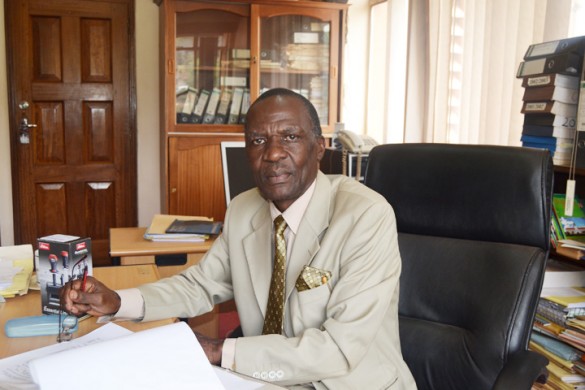

 General6 hours ago
General6 hours ago
 General5 hours ago
General5 hours ago
 Humanities & Social Sciences1 week ago
Humanities & Social Sciences1 week ago
 General1 week ago
General1 week ago
 Agriculture & Environment2 weeks ago
Agriculture & Environment2 weeks ago


